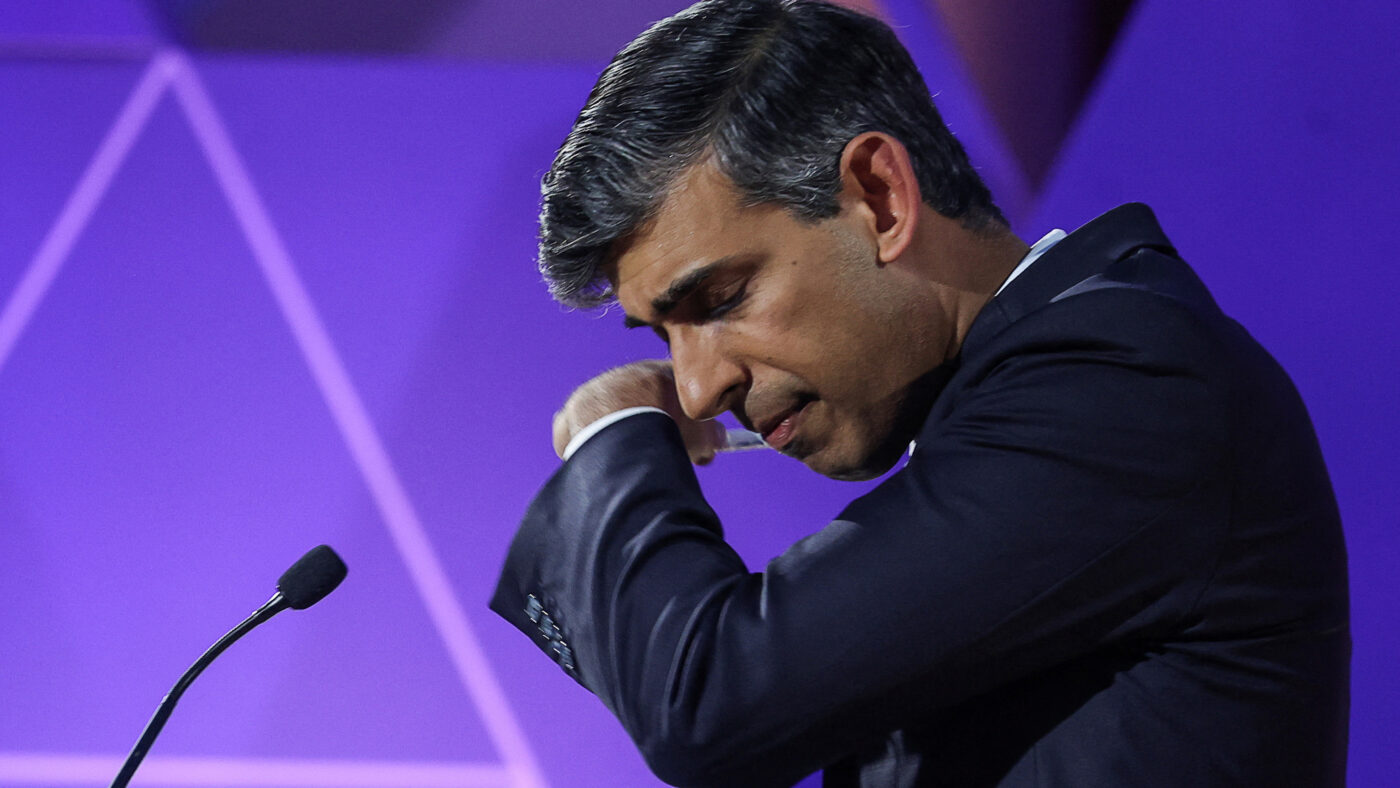So here it is. Against all odds, an election where your vote really matters. It doesn’t feel that way, of course. If Labour fail to secure victory on Thursday, pundits across the political spectrum will be dining on roast crow, stuffed with their hats. If Keir Starmer is not standing outside Number 10 on Friday, the nation’s pollsters will have to be driven into the wilderness in disgrace, wailing over their discredited MRP models.
Yet precisely because things now look so apocalyptic for the Conservative Party, how you vote really can affect the look of the Opposition benches. It is a quirk of our first-past-the-post system that once a party’s support falls below 25% the number of seats that party can hold starts to drop sharply.
The Conservatives are now at risk of tumbling all the way down that voting cliff to their doom. A quite small decline in vote share could leave the parliamentary party so diminished that Ed Davey ends up as leader of the Opposition.
Yet consider the counterfactual. This also means that even a small increase in Conservative turnout on July 4, especially if it happens in key marginals, could significantly boost the number of Tory MPs left standing at the end of the night, even if the best they can hope for is a 1997-style wipeout. The pollster James Kanagasooriam puts the number of seats the Tories could still win at between 60–160: an astonishing range.
Unfortunately for Rishi Sunak, there are many voters – including disaffected Tories – who will be rubbing their hands with glee at the prospect of pushing his party over a cliff. The polls make clear that this election is not about embracing Labour’s vision for the country. Instead, it has the quality of something much more primal: the expulsion of a scapegoat.
The philosopher René Girard best explained what the Conservatives are facing. There is a timeless human urge in societies suffering from crisis to focus collective anger on a particular target. We heap the victims with blame and expel them from our midst. Then we breathe a sigh of relief at the feeling that order has been restored.
It is hardly surprising that Brexit divisions, Covid lockdowns, the cost of living crisis and years of economic stagnation have left Britain desperate for someone to blame. Yet scapegoats always get more blame than they deserve. Those who are looking to hurl the Conservatives to their destruction should draw breath and ask themselves if they are in the grip of a fury that risks leaving the country even worse off.
Whichever party is in power, CapX will continue to share the free-market solutions Britain needs. Yet if the Conservatives are routed, who will be left to champion those ideas in the face of Labour’s more statist inclinations?
There is another curious property of scapegoats worth bearing in mind. It is one that even offers the Conservative Party a glimmer of hope. According to Girard, the scapegoats we drive out in disgust can quickly turn around and become our heroes. Could the Tories pull off something similar?
If, as seems inevitable, Labour form our next government, the country’s sense that order has been restored will be short-lived. As CapX has pointed out this week, Labour’s contradictions on immigration and public sector pay will soon start to pull apart their claims to moderation and unity. On growth and house building, Starmer’s party sees the importance of both, but it is not clear that they will do what it takes to get there. Never mind the question of how Starmer will fare on the international stage in the face of a potential Trump presidency or the rise of the hard right in France.
Sooner than many now expect, the Conservatives will be looked to again to resolve the intractable problems set to bedevil Starmer’s administration. When that happens, they will need enough MPs to mount a fightback.
Those who want to see an effective opposition should put down their pitchforks and consider if the villain they want to drive out could soon be the hero they need on their side.
Click here to subscribe to our daily briefing – the best pieces from CapX and across the web.
CapX depends on the generosity of its readers. If you value what we do, please consider making a donation.


